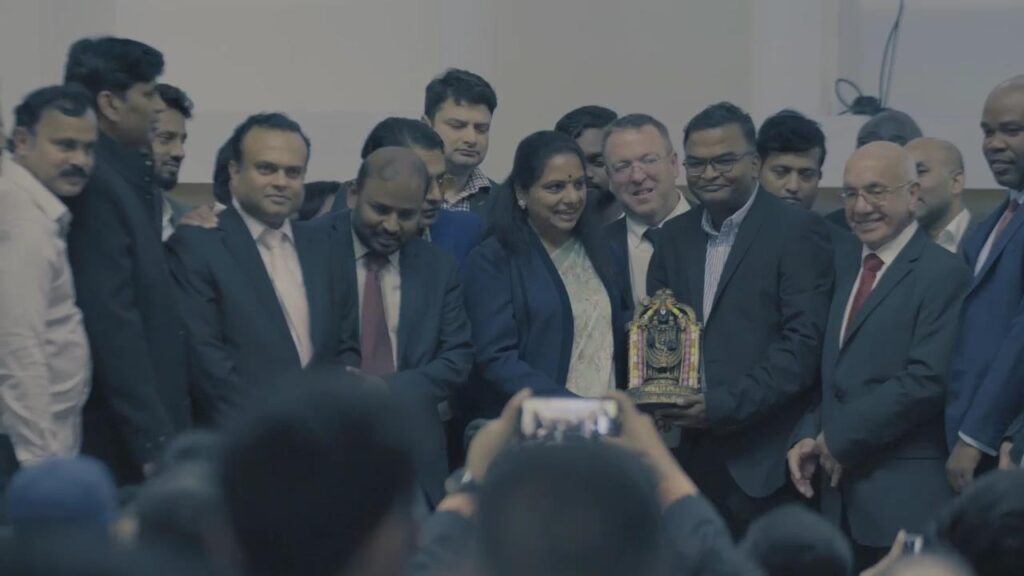London(Oct, 8) : During her visit to London, BRS MLC Kalvakuntla Kavitha praised the transformative era under Chief Minister KCR in Telangana, emphasizing the state’s remarkable progress across various domains. Engaging with members of the National Indian Students and Alumni Association – UK (NISAU), Kavitha addressed questions on women’s reservation, Telangana’s development, and her political journey.
She highlighted the comprehensive survey conducted after Telangana’s formation, providing essential socio-economic data that has facilitated targeted upliftment efforts. Kavitha commended the KCR government’s incentives to uplift various communities, citing examples like the transformation of fishermen’s lives through pond repairs and free distribution of fry. She also discussed initiatives such as Dalit Bandhu, which has empowered marginalized communities to establish industries.

Kavitha elaborated on advancements in education, sports, and special residential schools for minorities, emphasizing the government’s dedication to improving education standards. She noted the threefold increase in research scholar stipends, the highest salaries for government employees, and unique incentives like a 30 percent risk allowance for traffic constables.
The MLC highlighted key schemes like Haritaharam, Mission Bhagiratha, and Mission Kakatiya, underscoring CM KCR’s vision of creating wealth and fostering economic growth in rural areas.
Kavitha also recalled CM KCR’s unwavering commitment to Telangana’s formation, including his resignation from the post of Union Minister and exit from the UPA alliance due to the Congress party’s perceived inaction. She shared her personal journey into politics, driven by a desire to make a difference in people’s lives, particularly the empowerment of women.
Women’s reservation in politics was a topic Kavitha frequently addressed, expressing concerns about the underrepresentation of women in India’s political landscape. She initiated a movement for the Women’s Reservation Bill, organizing a massive dharna in Delhi, garnering support from leaders of various parties, and introducing a private member’s bill in parliament.
Kavitha argued that legislative measures were essential to ensure equal opportunities for women in politics, emphasizing the need for electoral reforms. She noted that public awareness on this issue was growing, citing Telangana’s local bodies with a significant representation of women as an example of progress.
Overall, Kavitha’s interaction in London provided insights into Telangana’s developmental strides and her commitment to advocating for women’s empowerment and political representation.




